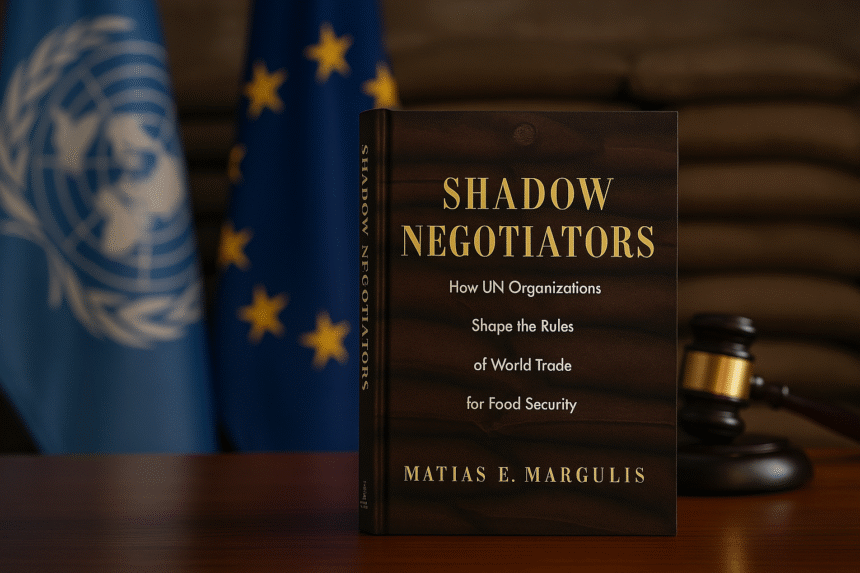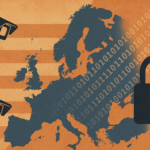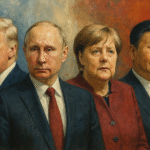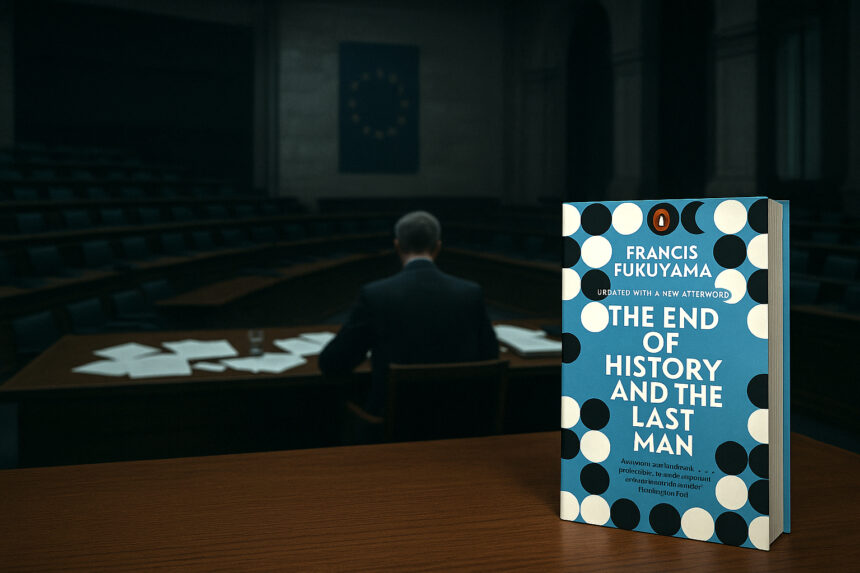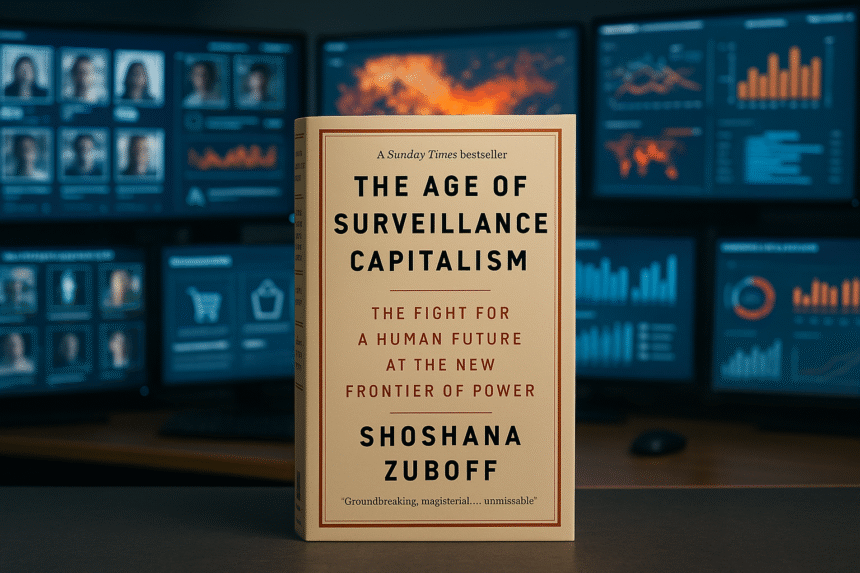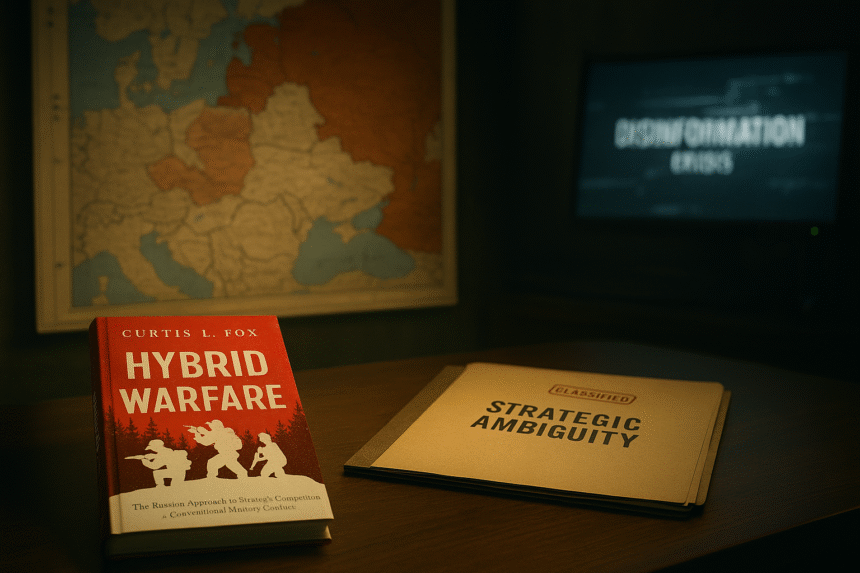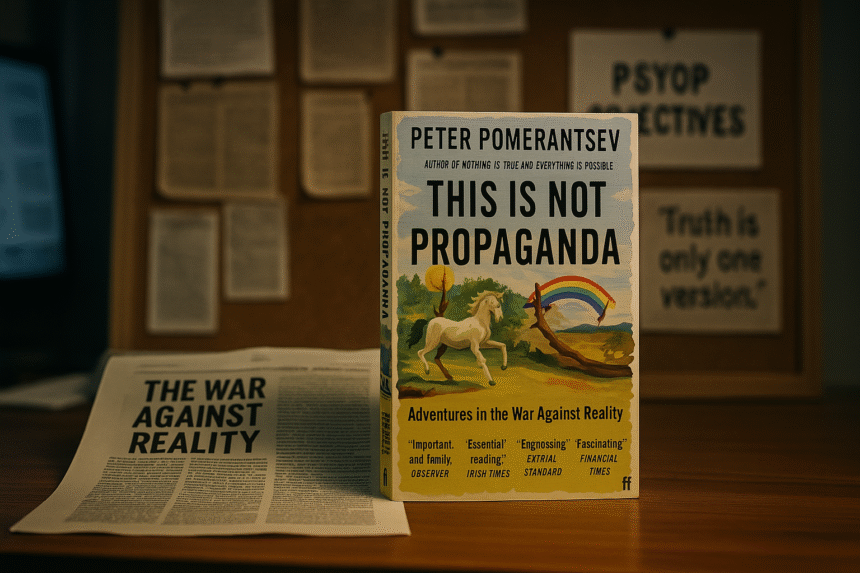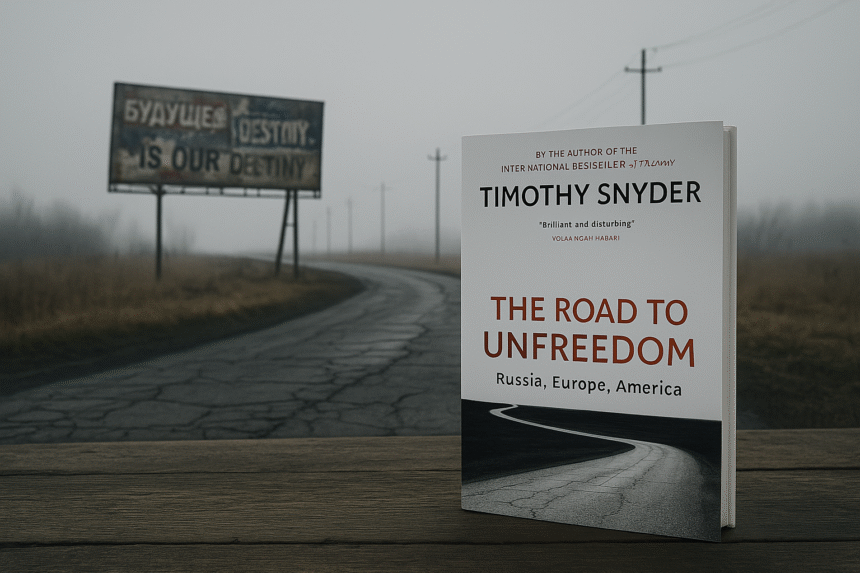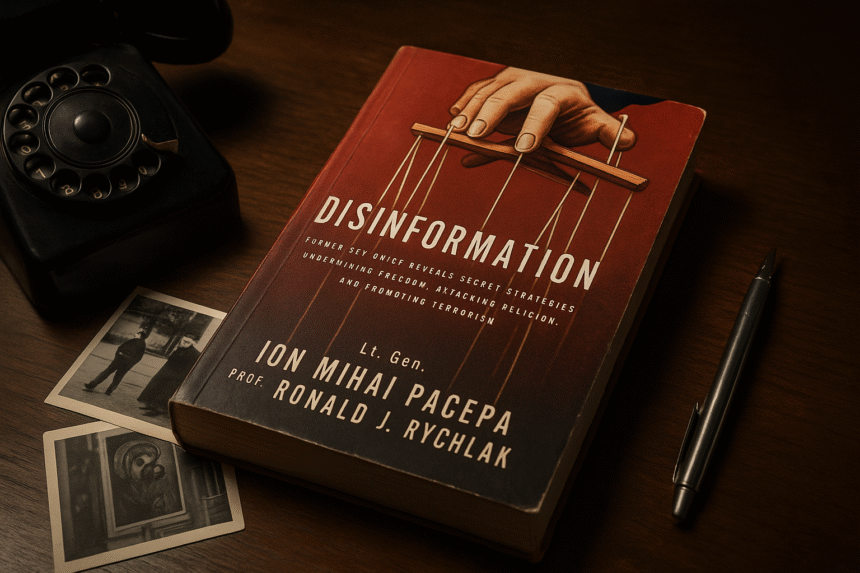Introduction: Governing Without Mandate
In Shadow Negotiators: How UN Organisations Shape the Rules of World Trade for Food Security (Stanford University Press, 2023), Matias E. Margulis provides one of the most detailed institutional investigations to date of how International Organisations (IOS) intervene in global governance without formal negotiating authority. Using the World Trade Organisation (WTO) as his arena of analysis, Margulis introduces a new theoretical category — intervention — to describe the informal yet strategically potent role played by UN agencies in crafting global trade rules on agriculture and food.
His argument is precise and verifiable: beginning in the early 1990s and continuing through the Doha Development Round, four UN institutions — the FAO, WFP, OHCHR, and the Special Rapporteur on the Right to Food — actively participated in WTO negotiations. Despite lacking a mandate, they submitted proposals, shaped agendas, and influenced outcomes. This activity occurred within the legal grey zones of overlapping global regimes — a phenomenon Margulis calls “regime complexes.”
The book avoids journalistic framing and instead conducts a political sociology of elite influence under distributed authority. Its relevance to Europe’s current hybrid warfare phase is substantial: Margulis shows how bureaucracies—posing as neutral actors—pull the levers of institutional power from behind the curtain, not rogue states or corporations.
Conceptual Framework: Defining Intervention
Margulis positions his argument against the dominant models of IO interaction: cooperation (rule harmonisation) and competition (jurisdictional conflict). He identifies a third category — intervention — which occurs when one IO acts of its own volition to shape policymaking inside another IO without formal permission, invitation, or jurisdiction.
This definition depends on three key conditions:
- Independent Initiation: The IO acts without formal delegation from any member state or coalition.
- Policy Impact: The intervention produces discernible effects on negotiation discourse or outcomes.
- Cross-institutional action: The IO acts in a domain (e.g., trade) outside its own core legal or administrative competence.
Margulis draws on elite interviews, internal documents, and primary archival sources to show how UN agencies — often in response to food security crises — developed informal authority in WTO agricultural trade negotiations.
The resulting pattern reveals not only institutional elasticity, but a quiet erosion of state-centric sovereignty in multilateral regimes.
Case Study 1: FAO — Technical Expertise as Political Leverage
Timeline: Uruguay Round (1986–1994), Doha Round (2001–2005)
The Food and Agriculture Organisation (FAO) used its expertise on food-importing countries (NFIDCS) to justify direct involvement in trade negotiations. Although formally restricted to providing technical assistance, FAO officials began advising developing country coalitions on negotiation positions.
- Tactic: They reframed agricultural trade rules as a matter of food security.
- Impact: Their input helped secure the Marrakesh Decision on differential treatment for NFIDCs — a binding WTO mechanism.
FAO officials prepared memos, talking points, and legal justifications for WTO member states, operating as a surrogate negotiation team. The FAO’s governing body did not mandate these actions, and in some cases, they ran contrary to the positions of member states.
This case illustrates how “neutral” expertise, once embedded in negotiation flow, becomes a political asset with direct influence over institutional design.
Case Study 2: WFP — Public Shaming as Trade Strategy
Timeline: Doha Round (2005–2011)
The World Food Programme (WFP) intervened when trade liberalisation proposals threatened to ban in-kind food aid, its primary operational model. The WTO, led by donor countries such as the EU and the US, viewed in-kind aid as potentially trade-distorting. WFP viewed it as essential to humanitarian logistics.
- Tactic: WFP launched a public advocacy campaign accusing WTO members of risking global hunger.
- Impact: Reputational pressure shifted the tone of negotiations. Delegates retracted or softened proposals to ban in-kind aid.
Unlike the FAO, the WFP deliberately abandoned technical neutrality. It framed its intervention in moral terms and used the media to pressure WTO negotiators. This move marked an early instance of external narrative warfare penetrating a formal regime.
Margulis categorises this as a reputational asymmetry: WFP leveraged its high-trust humanitarian brand to delegitimise WTO actors without entering the room.
Case Study 3: OHCHR — Legal Friction via Human Rights Norms
Timeline: Late Doha Round (2010–2015)
The Office of the High Commissioner for Human Rights (OHCHR) represents a different mode of intervention. Rather than proposing trade alternatives, OHCHR introduced legal friction by reminding WTO members of their obligations under the International Covenant on Economic, Social and Cultural Rights (ICESCR).
- Tactic: The OHCHR issued formal communications, asserting that the proposed WTO food stockholding rules could violate the right to food.
- Impact: Dual legal exposure—WTO obligations versus human rights law—compelled negotiators to adjust their strategy.
This case introduces a new intervention mechanism: normative collision. By introducing rival legal norms into the negotiation process, OHCHR made certain WTO positions appear legally vulnerable. Margulis shows that this altered bargaining position in the G33 led to stronger protection for food stockpiling programs.
This method resembles legal hybridisation, where Shadow Negotiators weaponise legal pluralism to slow, redirect, or disrupt regime evolution.
Case Study 4: UN Special Rapporteur on the Right to Food — Shadow Negotiation by Persona
Timeline: 2008–2014
The UN Special Rapporteur on the Right to Food (SRRTF), especially under Olivier De Schutter, played the most explicit interventionist role. Despite being an individual mandate-holder with no institutional power, the SRRTF:
- Issued full legal proposals
- Built alliances with the African Group and G33
- Directly lobbied member states inside WTO negotiation corridors
De Schutter’s proposals were frequently cited in negotiation texts. His 2009 report advocating for a legal waiver on food stockholding was instrumental in the adoption of the Bali Package (2013) — a WTO decision granting flexibility to developing countries to maintain food reserves.
Margulis notes that the SRRTF operated as a complete de facto negotiator, but one not answerable to any government, court, or administrative review body.
Implications: Bureaucratic Intervention as a Mechanism of Hybrid Governance
What emerges from Margulis’ study is a comprehensive model of how IOs participate in informal lawmaking without democratic legitimacy. His cases demonstrate that:
- Legal authority is porous: Once IOs frame issues as humanitarian or rights-based, they can penetrate other regimes.
- Expertise is political capital: Technocratic roles can mask overt political intervention.
- Reputation is a weapon: High-trust IOs can use public perception to coerce policy shifts.
This constellation of powers, deployed from outside the negotiation framework, constitutes a strategic architecture of governance without representation.
For European actors working to maintain legal sovereignty, these findings carry operational urgency. They expose how actors claiming neutrality can overrun institutional mandates from within.
Conclusion: A Manual for Detecting Institutional Subversion
Shadow Negotiators does not issue a warning—it documents with forensic precision. Margulis avoids speculation. He identifies the actors, cites the mechanisms, and traces how the rules change. He builds a vocabulary—intervention, regime complex, institutional friction—that equips readers to detect and describe how global governance operates beneath the threshold of visibility through shadow negotiators.
In the age of hybrid war, this book functions as a casebook in lawfare, narrative pressure, and bureaucratic agility—tools that override formal state power. For civil society, parliamentarians, and intelligence analysts, the lesson is unmistakable: actors can displace sovereign rulemaking without a vote, a treaty, or a headline—simply by reframing the process.
The Quiet Redirection of Power Requires Exposure
Unaccountable bureaucracies are redirecting the mechanisms of international law without any formal mandate. They now shape global trade rules behind the scenes, bypassing exclusive state negotiation.
If this analysis helped clarify how institutional power now functions, share it.
Support Frontline Europa as we continue to document how actors bypass sovereignty, rewrite laws, and displace legitimacy, often without public knowledge.
Independent journalism is the first line of defence.
Ukrainian soldiers hold the second. Support both.
References
- Margulis, Matias E. Shadow Negotiators: How UN Organizations Shape the Rules of World Trade for Food Security. Stanford University Press, 2023.
- WTO Ministerial Records (Marrakesh Agreement, Bali Package)
- International Covenant on Economic, Social and Cultural Rights (ICESCR)
- UN OHCHR Communications to WTO (2011–2014)
